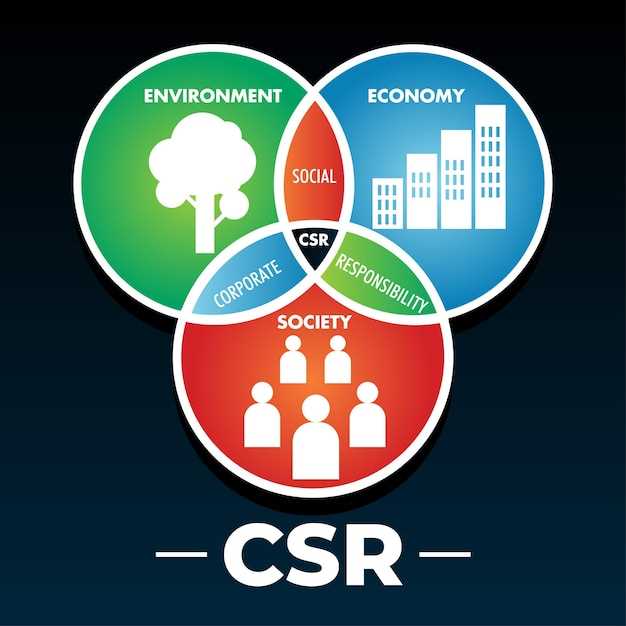
When businesses embrace ethical conduct and focus on their duty to society, it can have a profound effect on the way they operate. Companies that place a strong emphasis on doing what is morally right not only build a positive reputation but also cultivate long-lasting relationships with their stakeholders.
Embracing ethical principles goes beyond simply following regulations and guidelines; it involves making decisions that benefit not only the organization but also the community and the environment. Companies that prioritize ethical practices are often seen as trustworthy, transparent, and responsible in the eyes of consumers, investors, and employees.
The Influence of Ethical Obligations on Promotional Tactics
In today’s competitive market environment, companies are increasingly recognizing the importance of integrating ethical obligations into their marketing strategies. This involves aligning promotional tactics with social responsibility initiatives to create a positive impact on both society and the bottom line.
Enhancing Brand Reputation

- Ethical marketing practices can help businesses build a strong brand reputation based on trust, transparency, and integrity.
- Consumers are more likely to support companies that demonstrate a commitment to social responsibility, leading to increased brand loyalty and positive word-of-mouth marketing.
Attracting Ethical Consumers
- By incorporating social responsibility into their marketing strategies, companies can attract and retain ethical consumers who prioritize sustainability and corporate citizenship.
- These consumers are willing to pay a premium for products and services from socially responsible companies, creating a competitive advantage in the market.
In conclusion, the influence of ethical obligations on marketing strategies cannot be understated. By embracing social responsibility initiatives, companies can differentiate themselves from competitors, build a strong brand reputation, and attract a loyal customer base that values sustainability and ethical business practices.
Exploring the link between CSR and consumer trust

Investigating the connection between ethical business practices and the confidence consumers have in a company is crucial for understanding the impact of sustainability efforts on public perception. By delving into how corporate social responsibility initiatives influence consumer trust, we can gain insight into the effects of ethical decision-making on brand reputation and customer loyalty.
Researching the correlation between CSR activities and consumer trust allows us to explore the underlying mechanisms that drive positive attitudes towards companies that prioritize social and environmental sustainability. Examining the ways in which businesses communicate their commitment to responsible practices can shed light on the factors that contribute to building strong relationships with customers based on trust and transparency.
Integrating Social Responsibility in Business Operations
Incorporating ethical practices and sustainability initiatives into daily operations can enhance a company’s reputation and foster positive relationships with stakeholders. By integrating social responsibility into business activities, organizations can demonstrate their commitment to ethical standards and environmental stewardship.
Creating a Culture of Sustainability
Building a culture of sustainability within a company involves instilling ethical values and practices throughout all levels of the organization. This can include promoting eco-friendly policies, encouraging employee engagement in social responsibility initiatives, and monitoring the impact of business operations on the environment.
Collaborating with Community Partners
Establishing partnerships with local communities and nonprofit organizations can provide opportunities for businesses to give back and support social causes. By working together on projects that benefit society, companies can strengthen their relationships with communities and demonstrate their commitment to corporate social responsibility.
- Developing sustainable supply chains
- Implementing fair labor practices
- Supporting diversity and inclusion initiatives
How CSR programs can enhance employee engagement
Engagement of employees is a crucial aspect of a company’s operations, fostering a sense of involvement and commitment among team members. Corporate Social Responsibility initiatives can play a significant role in boosting employee engagement within an organization. These programs demonstrate a company’s values, commitment to social causes, and efforts to make a positive impact beyond just profit-making activities. By participating in CSR initiatives, employees can feel a sense of pride in their organization and a deeper connection to its mission and values.
One way in which CSR programs enhance employee engagement is by providing opportunities for employees to contribute to causes they care about. When employees are given the chance to participate in CSR activities such as volunteering, fundraising, or eco-friendly initiatives, they feel a sense of purpose and fulfillment beyond their daily work tasks. This can lead to increased job satisfaction, motivation, and loyalty among employees, resulting in a more engaged and productive workforce.
| Another benefit of CSR programs is the positive impact they have on company culture. | By promoting community involvement, sustainability, and ethical practices, CSR initiatives help create a work environment that aligns with the values of employees. |
| Employees who feel that their company is making a difference in the world are more likely to be proud to be part of the organization and motivated to perform at their best. | This sense of pride and motivation can translate into higher levels of employee engagement and a stronger sense of camaraderie among team members. |
In conclusion, CSR programs have the potential to significantly enhance employee engagement within a company. By providing employees with opportunities to contribute to meaningful causes, fostering a positive company culture, and promoting a sense of pride and motivation, CSR initiatives can create a more engaged and dedicated workforce. Investing in CSR programs is not only beneficial for the community and the environment but also for the overall success and sustainability of the business.
The Financial Benefits of Corporate Social Responsibility
In the realm of financial advantages related to the ethical business practices, companies often reap rewards for their commitment to sustainable and socially responsible initiatives. These benefits can manifest in various forms and impact the company’s bottom line in a positive manner.
| Financial Benefit | Description |
|---|---|
| Cost Savings | By implementing environmentally friendly practices, companies can reduce energy consumption, waste production, and overall operational costs. |
| Increased Brand Value | Consumers are more likely to support and purchase from companies that prioritize ethical and sustainable practices, leading to higher brand loyalty and increased sales. |
| Access to Capital | Investors and financial institutions are increasingly looking to support companies with strong corporate social responsibility (CSR) initiatives, providing access to funding and favorable terms. |
| Risk Mitigation | By proactively addressing social and environmental issues, companies can minimize reputational risks, legal liabilities, and regulatory challenges, safeguarding their long-term financial stability. |
Overall, integrating CSR into business strategies not only enhances the company’s reputation and relationships with stakeholders but also contributes to financial growth and sustainability in the long run. The financial benefits of corporate social responsibility extend beyond profitability, demonstrating the value of responsible business practices in today’s competitive landscape.
